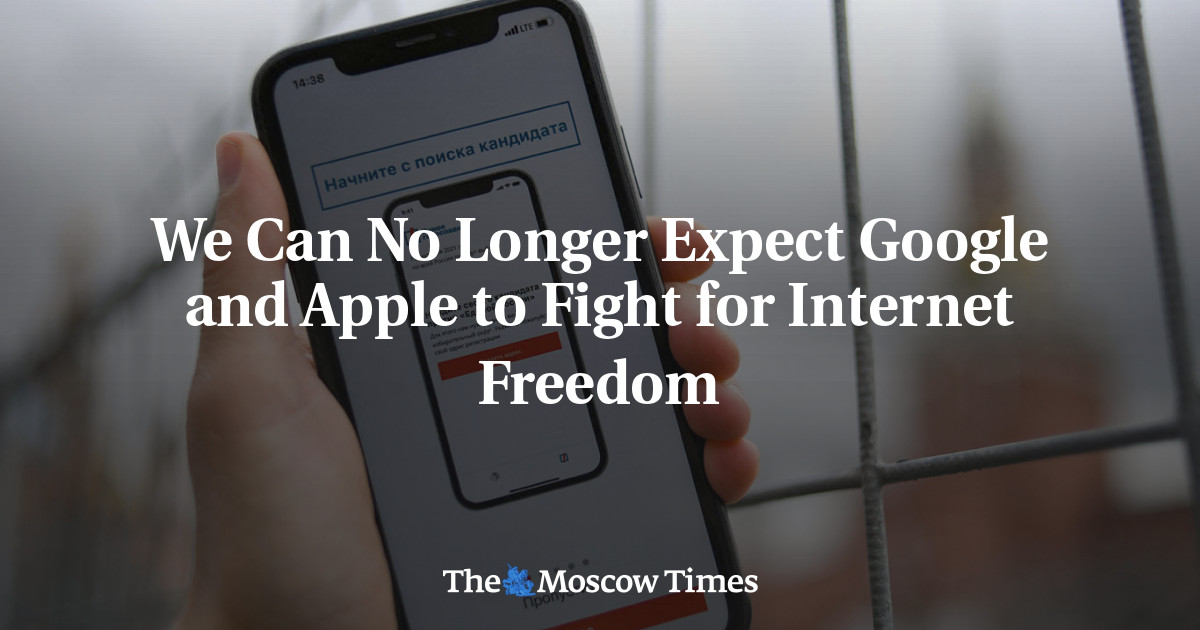- Joined
- Apr 18, 2013
- Messages
- 108,733
- Reaction score
- 99,253
- Location
- Barsoom
- Gender
- Male
- Political Leaning
- Independent

We Can No Longer Expect Google and Apple to Fight for Internet Freedom - The Moscow Times
Opinion | The news of Google and Apple finally succumbing to Kremlin pressure and taking down Navalny’s app caused confusion and understandable anger among Russian liberals.
9/20/21
The news of Google and Apple finally succumbing to Kremlin pressure and taking down Alexei Navalny’s voting app caused confusion and understandable anger among Russian liberals. But it was hardly surprising. For decades, the Internet giants existed believing public trust was an integral part of their business model. That all ended in 2016. The backlash that followed the Russian interference in the presidential election in the United States, primarily targeting Facebook, was massive, unprecedented and never actually stopped. The non-stop Congress hearings, scandals, whistleblowers coming out with the most damaging accusations about manipulation of users’ data, promoting hatred and divide, even helping hostile states and malicious populists with horrible agenda, all of that would have killed the company if Facebook’s business model still involved public trust. Zuckerberg’s creation would have been dead by now after hemorrhaging its users. But that never happened. Facebook’s monthly users have been on the rise since 2016 — reaching 1.86 billion in the fourth quarter of 2016, and 2.89 billion in the second quarter of 2021. That taught tech giants and governments an important lesson.
Ever since 2016 we’ve seen governments increasing pressure for more regulation of the global Internet giants. This has been happening everywhere — in the U.S., but also in Europe, and of course in countries with authoritarian regimes like Russia. The days of protesters in Moscow waving Facebook flags in front of the Presidential Administration building on Staraya Ploshchad are long gone. What is also gone is the idea that in countries with repressive regimes tech giants can be a force for good when it comes to Internet freedom. The tragedy of Google and Apple and Twitter is that this dramatic change in public and government perception happened so quickly that the companies are still run by the people who launched them. We expect them to keep fighting for privacy, integrity, and the Internet freedoms which made their business possible in the first place.
Google and its YouTube subsidiary, Apple, and Telegram all succumbed to Kremlin pressure and removed the availability of Alexei Navalny's Smart Voting app from the Russian people.
This app gave Russians viable alternative election candidates to Putin's United Russia rubberstamp candidates.

Why is Apple and Google closing down the Russian Navalny voting app not a massive story?
The story is chilling. Russia is holding a three day election for the Dumas. The Navalny opposition created a brilliant app to help Russian voters in not only voting against the Putin government but having a better chance of voting for people who will...
www.dailykos.com
